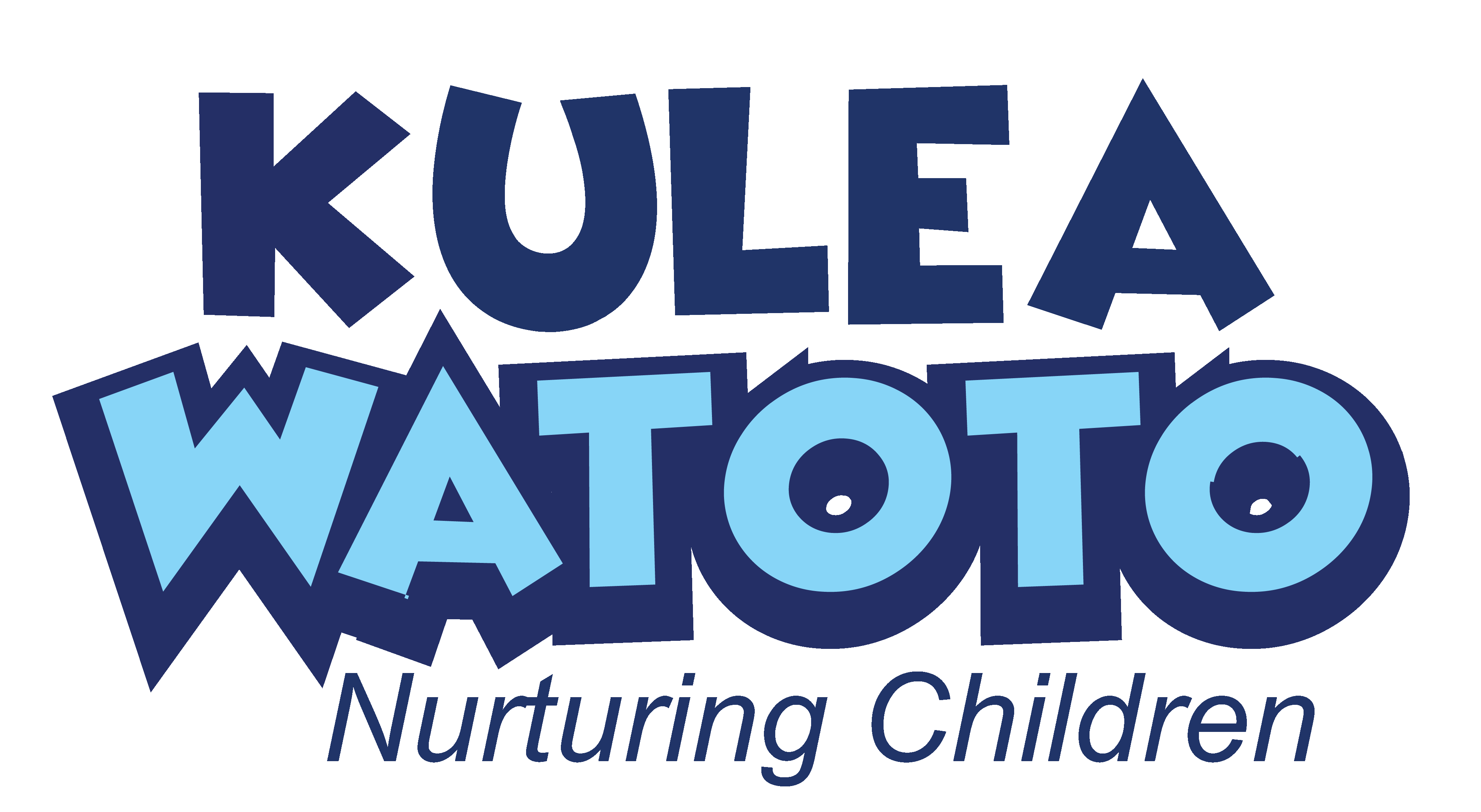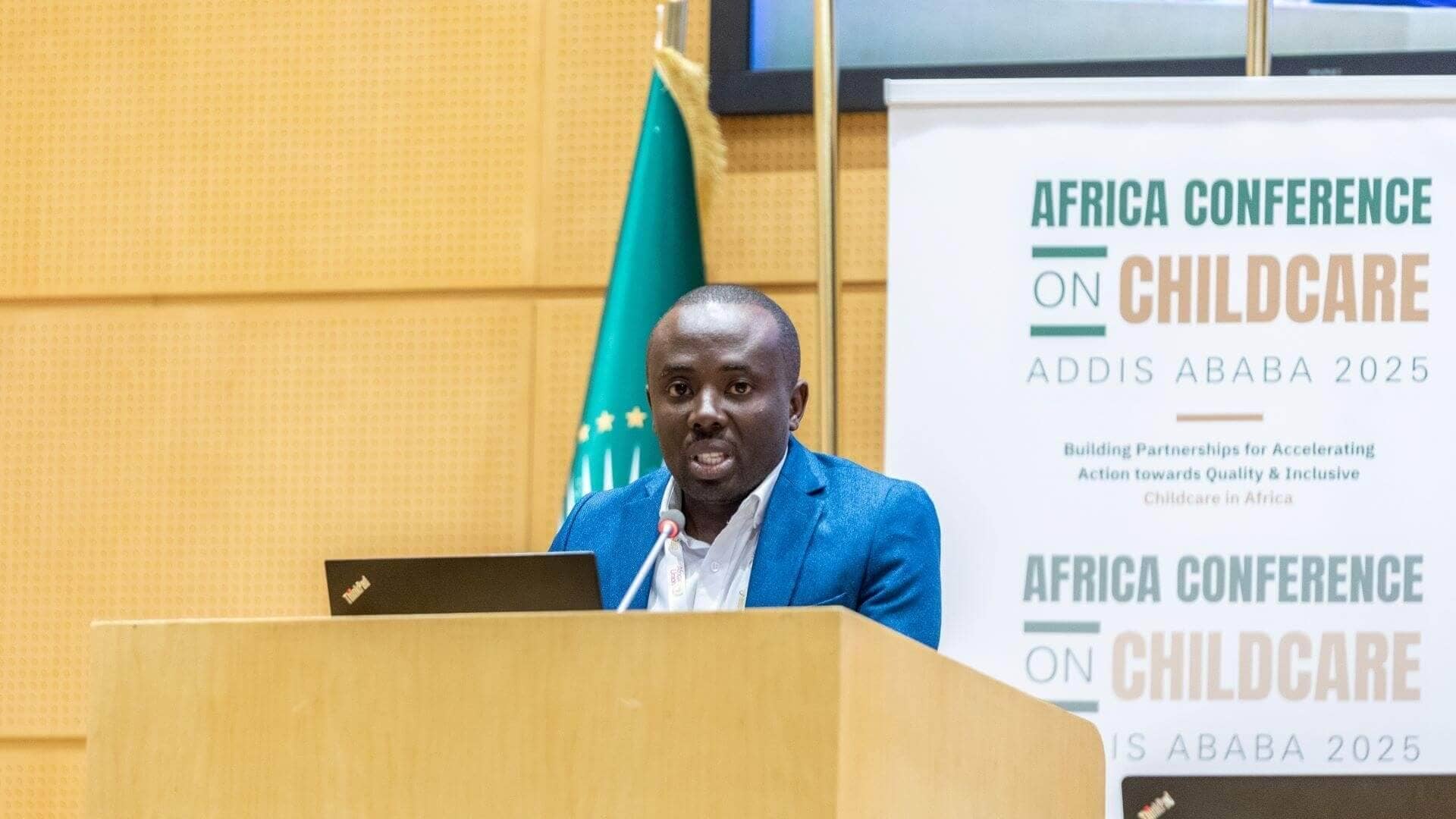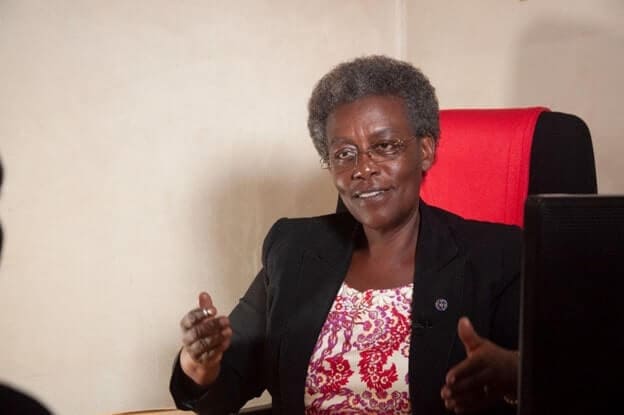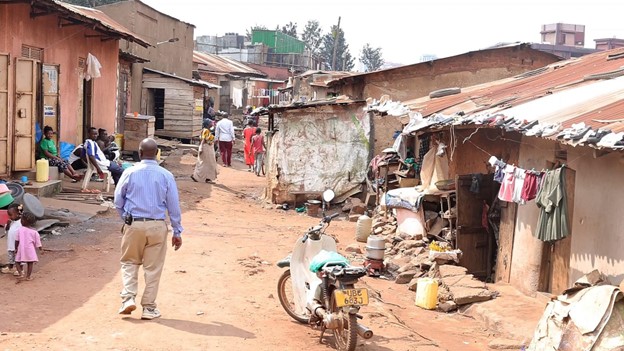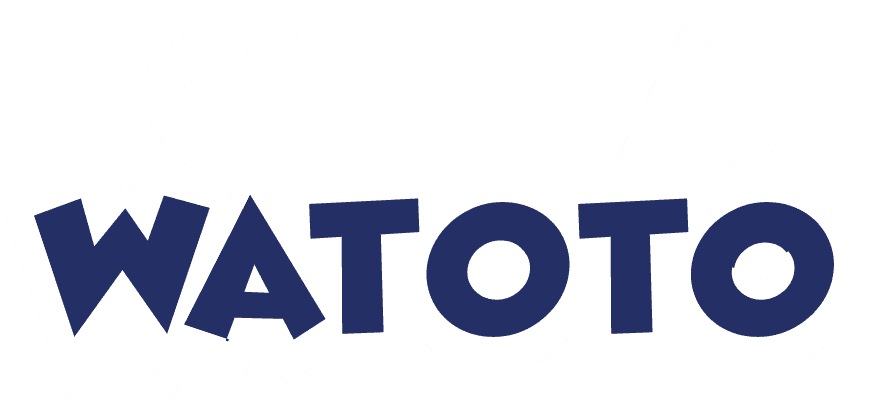Thriving farming communities in Bidi Bidi Refugee Settlement: Jafar Omondi’s story
Thriving farming communities in Bidi Bidi Refugee Settlement: Jafar Omondi’s story
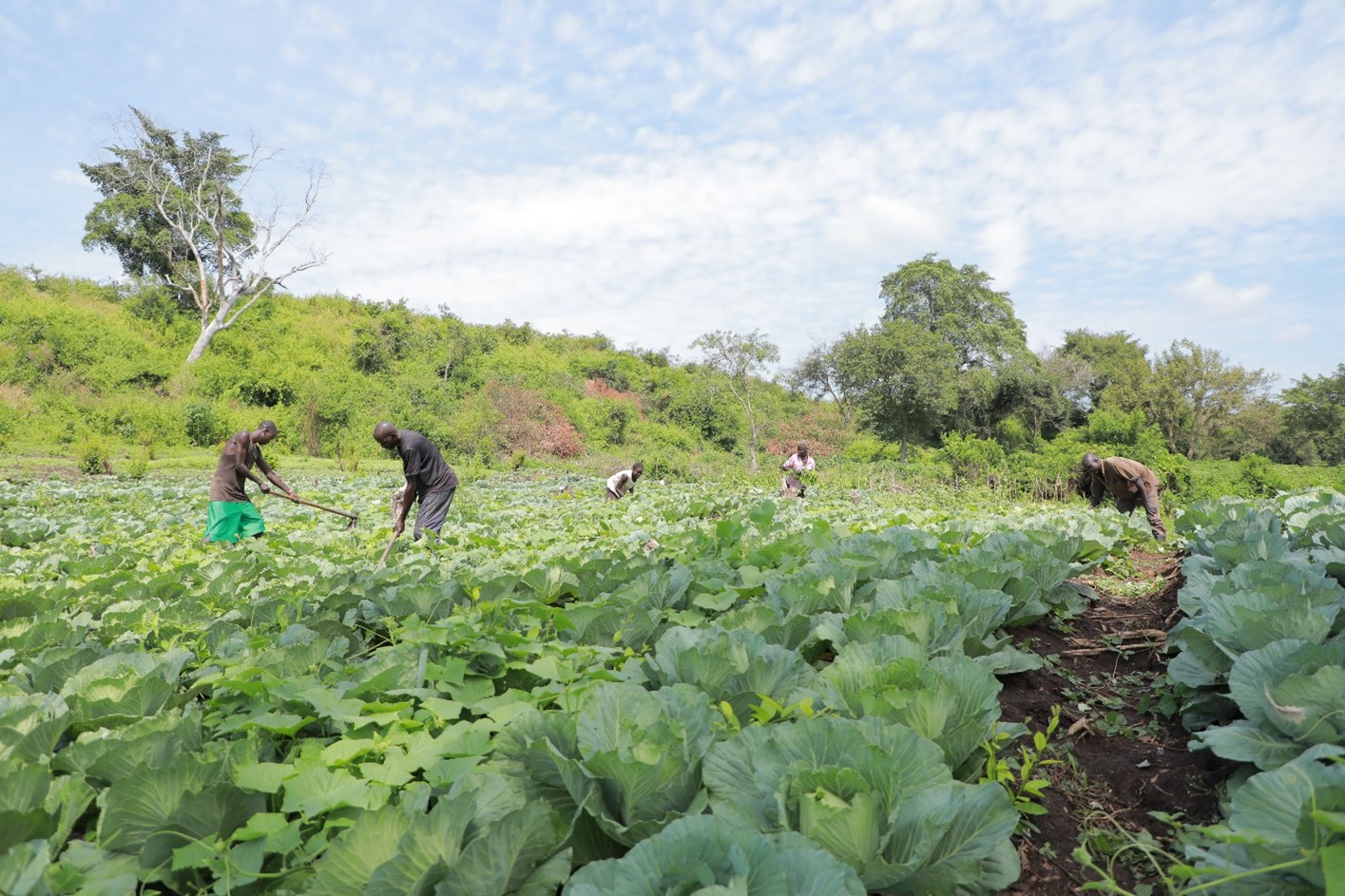
Jafar and members in his farmer group attend to their garden in Village IV of the Bidi Bidi Refugee Settlement in Yumbe. Following training by Kulea Watoto, Jafar and five other collegaues formed a group that is practising horticulture. ©IRC/Jonathan Ssekitondo
In the sunny Village Four of Bidi Bidi Refugee Settlement in Yumbe district lies a flourishing garden of collard greens popularly known as sukuma and cabbages. Jafar Omondi, a 46-year-old father of six, weeds this garden alongside his wife and four other colleagues. When asked if it is not too hot to be working, he responds with a hearty laugh. “It is worth it! This garden must be taken care of because it is making money for every single person here.”
Jafar had been a small holder commercial farmer for years, growing tomatoes and soybeans. When he was enrolled under the Kulea Watoto Project to join enterprise groups and gain training in horticulture from the project’s livelihood component, he knew that that was his window into doing commercial farming on a larger scale.
After the training, Jafar, a Ugandan national, formed an enterprise group of five members, all refugees from South Sudan including his dear wife, and established a garden that sits on over five acres. The group adopted the use of quality agro-inputs at different stages of production, and now maintain the garden through timely weeding to ensure that the plants are not overgrown. The group continues to have access to technical support from the International Rescue Committee (IRC) Economic Recovery and Development Officer, Mike Arimadri whenever they need it. Jafar appreciates this support, saying it has made a big difference.
“The International Rescue Committee trained us in good farming practices, gave us free seeds, farm tools like hoes, pangas, rakes, gumboots - and routine technical support from their project staff at the different phases of production. This training has helped us to specialize in particular crops and expand our farming on a commercial scale. We have crops at different stages – from the nursery bed to those awaiting sale. This means, we will have a continuous supply of crops throughout the year,” he says.
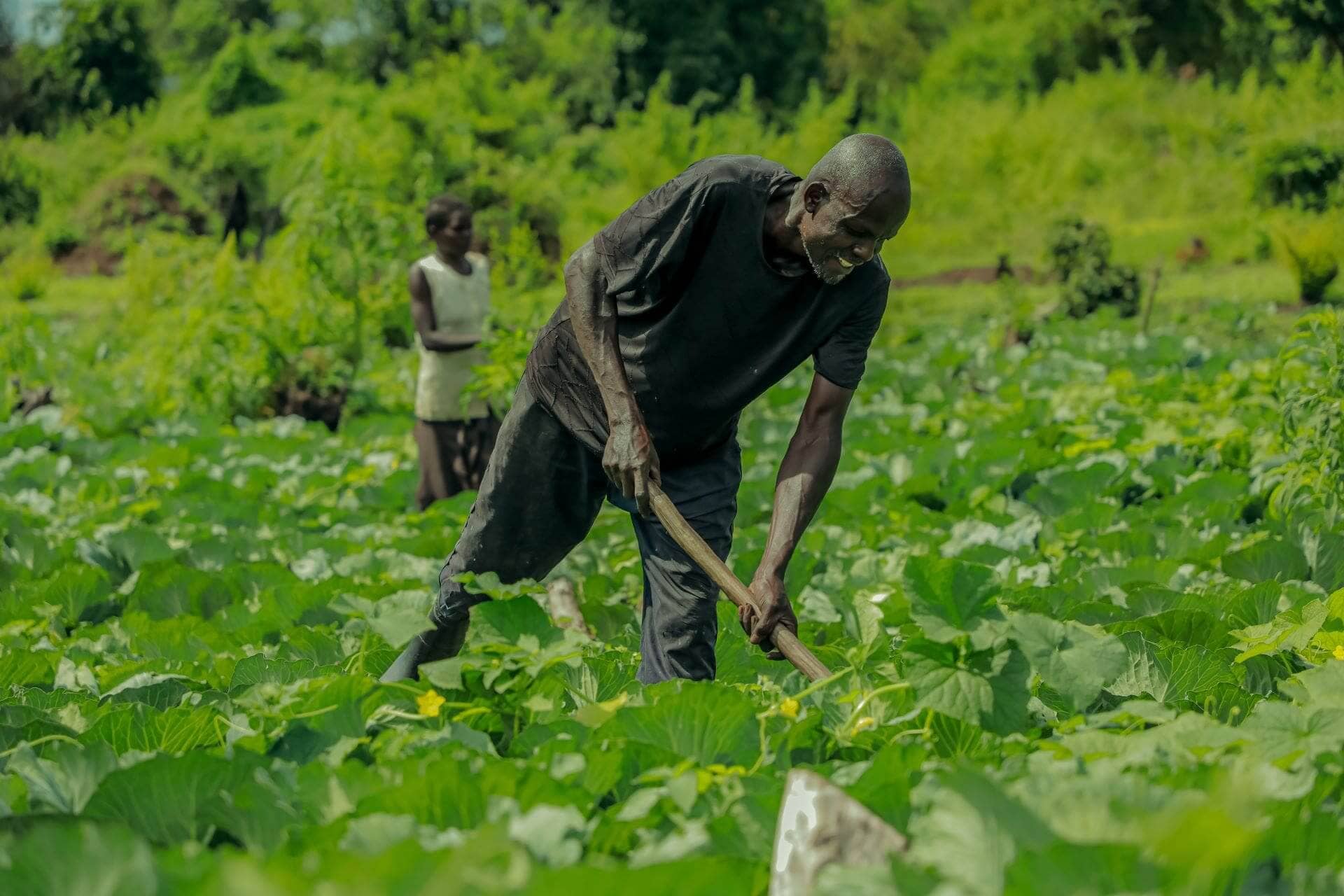
Jafar, a smile on his face, attends to his garden. Together with other group members, Jafar plans to venture into onion production for next year with an antiscipation of far-reaching yields. ©IRC/Jonathan Ssekitondo
Jafar notes that the group has found this new commercial horticulture approach to be very profitable. They invested a total of 700,000Shs ($ 180 in their garden to date, and have so far earned sh1,750,000 ($580) from their produce so far, selling at an average of 50,000Shs ($14) per sack. They keep records of all their expenditure and income.
“Market finds us here in the garden,” he says, pointing to traders lining up in their tens waiting to buy vegetables.
Thanks to the Kulea Watoto Project, Jafar and his friends have improved their lives. They can now pay school fees for all their school-going children with ease, unlike in the past where this was a challenge, feed better at their homes, provide for basic needs, and save in their savings group.
He is also happy to see that other members of her community have started coming to their garden to purchase vegetables. Here, he freely gives gardening advice and is proud to see other members of the community emulating their horticultural practices in their own gardens.
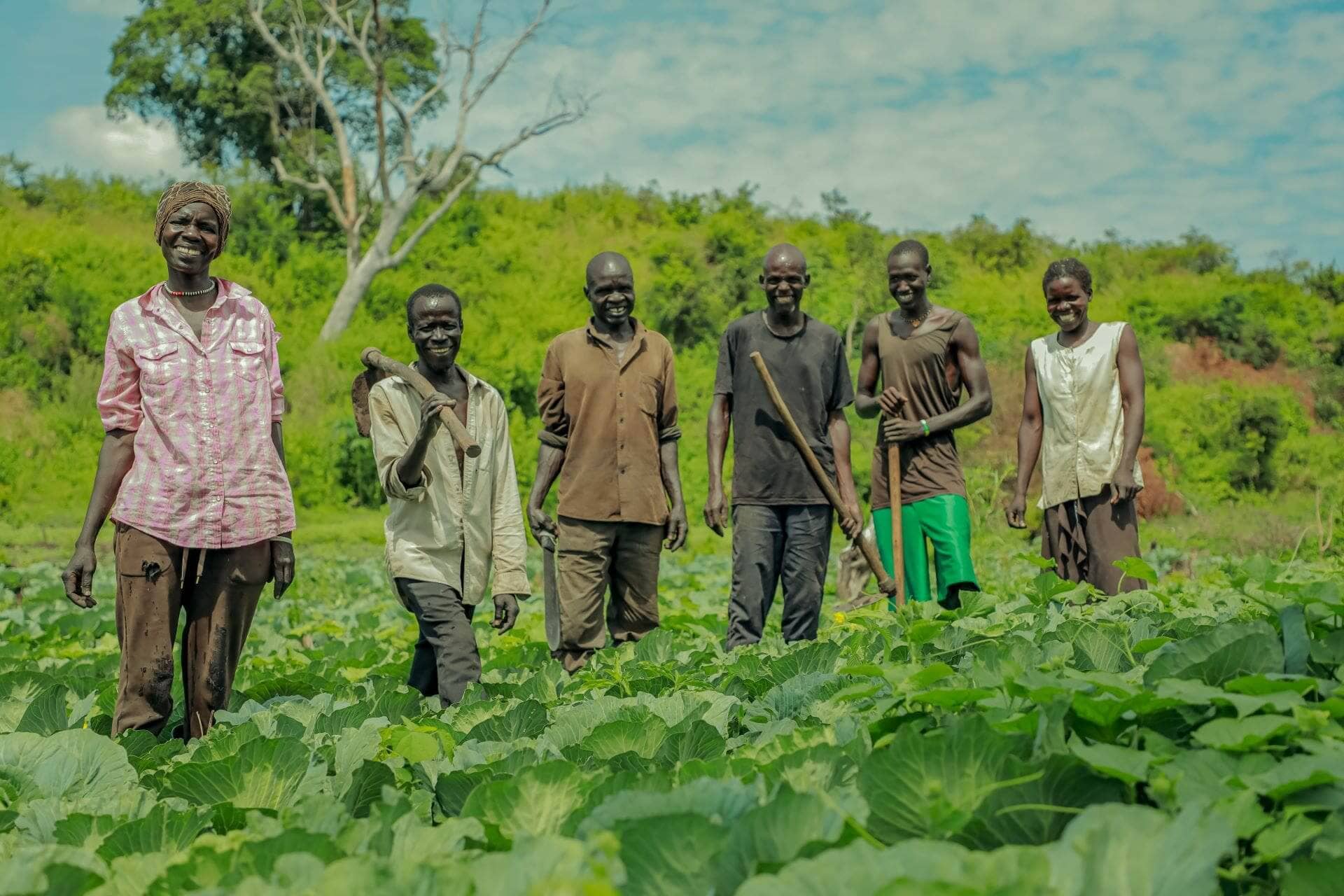
Jafar (third from right) poses for a photograph with members in his farmer group at their garden in Village IV. With proceeds from the garden, the group has been able to support themselves and provide for their families’ basic needs. ©IRC/Jonathan Ssekitondo
“Our landlord who has been engaging with us already planted his cabbages and cassava and they look lovely. People now consider our garden the easiest access to any vegetables they may need. They come to us at any time of the day when they urgently need to buy sukuma or cabbage and eggplants for meals. It is a blessing,” he says.
Thus far, it has been all smooth sailing for Jafar and his group during their production. When asked about the future for their garden farm and their lives, Jafar lets out a hefty laugh, and says with a smile, “We really want to be able to produce vegetables throughout the year. We don’t have to wait for the rainy seasons only. We will require a water pump to allow irrigation during the dry spells. We also want to clear and expand our land to 2 more acres and venture into growing onions. We want to continue paying our children’s school fees with ease and give our families decent livelihoods. With a bigger farm, I am sure that we will be able to do these things.”
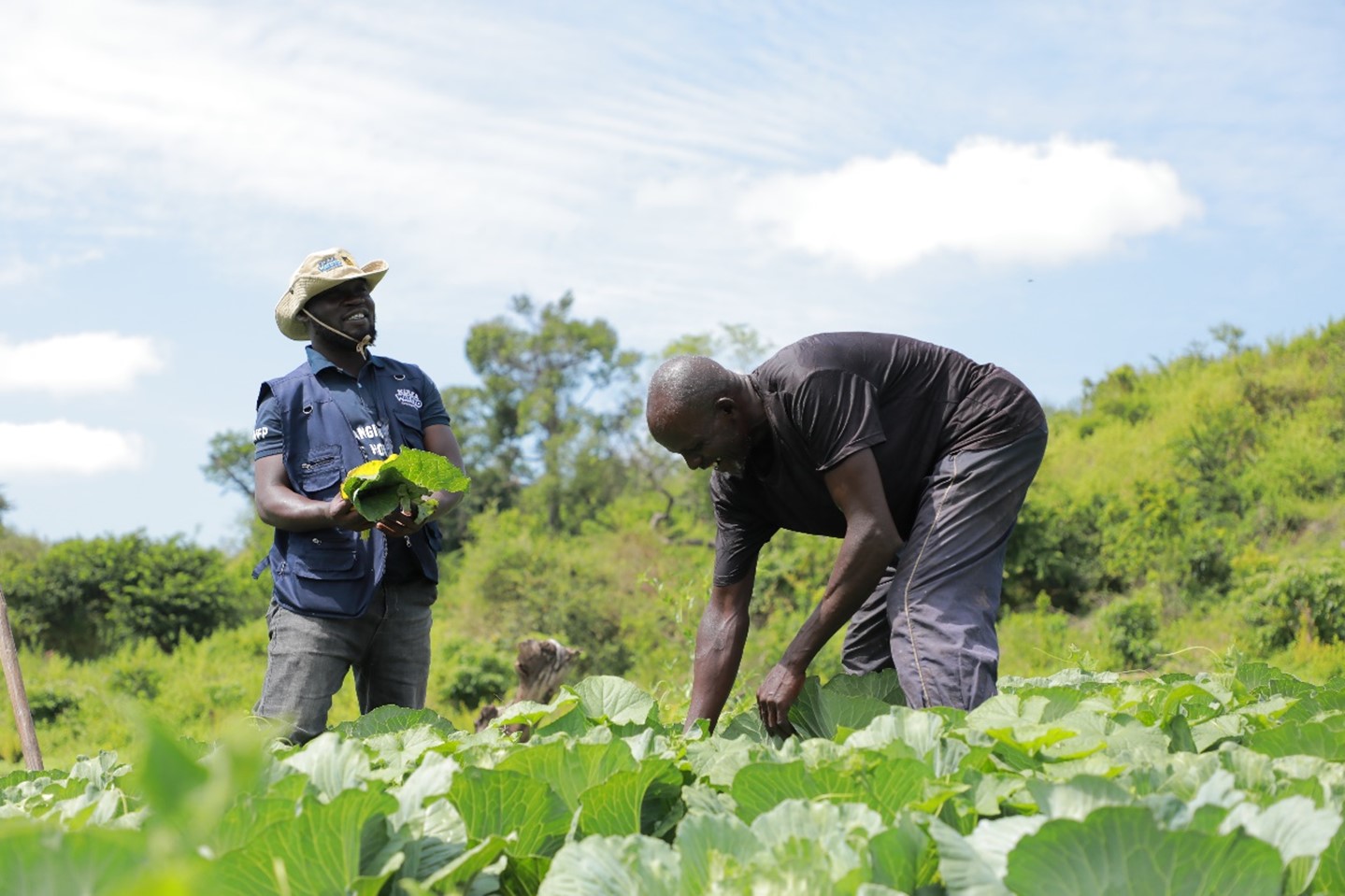
Mike Arimadri, the ERD Officer the International Rescue Committee shares a light moment with Jafar in his garden. Jafar is proud of the support Kulea Watoto has given them along the way to self-reliance through horticulture. ©IRC/Jonathan Ssekitondo
Jafar’s story is one of hard work, hope, and community spirit. With the support of the Kulea Watoto Project, he and his group are not just growing crops; they are building a better future for themselves and their village.
